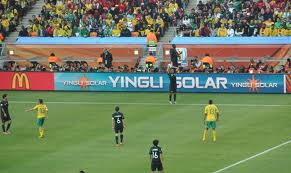The Australian head of global solar giant Yingli Green Energy has called for a more intelligent national conversation on solar, after a newspaper report claiming the market was flooded with “cheap and dodgy” panels prompted federal government calls for an inquiry into the industry.
As we reported here on Tuesday, a Fairfax Media article published on Sunday – Solar experts claim multi-billion dollar subsidies wasted on cheap and dodgy panels – reported claims that an influx of mostly China-made solar panels had compromised the quality and safety of the rooftop market.
These claims, particularly the less credible claims about panel safety, were taken seriously by federal environment minister Greg Hunt, who sent a letter to both the Clean Energy Council and the Australian Solar Council on Monday, demanding the CEC launch an investigation into the matter “immediately”.
Last we heard, the CEC was formulating its response to Hunt, but according to Yingli – whose China-made tier 1 panels hold one of the biggest shares in the Australian PV market – this kind of sensationalism is unhelpful and destabilising for an industry already hamstrung by uncertainty.
Daman Cole, the managing director of Yingli Solar Australia, told RenewEconomy in an interview on Thursday that his company rejected the inference of the SMH article that Chinese manufacturers tended to produce panels of sub-standard quality.
While it is true that the CEC currently has over 16,000 approved modules on its list of accreditation – many of which may not have a dedicated line of service to field customer queries or complaints – Cole says that “motherhood statements” like this just make it more difficult for consumers to make informed, sensible choices.
“It’s quite an old myth, that China-made stuff is poor quality,” Cole said. “We ask for a more intelligent debate around the question, rather than just defining solar by country of origin,” Cole said. “Country of origin should be one of the last determining factors.”
Cole said the success of Yingli’s Australian business – since 2012 it has doubled its market share year-on-year – had been boosted by its successful inclusion in landmark commercial solar projects, including last year’s 284kW installation at Australia Post, the 990kW system at the IKEA in Tempe NSW, and a 100kW system at Victoria’s Melbourne Show grounds.
But Yingli has also gone to some effort to differentiate its brand, and to establish a firm local presence, with a sales office in Pyrmont, NSW. It was also one of the first companies to opt in to the Australian Solar Council’s recently launched Positive Quality voluntary audit process – and the first to successfully complete the program.
As for what the future holds, Cole says the company’s Australian focus will remain on commercial installations for the next year or two, as it becomes more apparent to corporates that installing solar is not just a cost saving, but a revenue generator, and a way to gain independence from the grid.
Whether Yingli starts to aim for bigger projects, says Cole, depends a lot of on the outcome of the 12-month-old RET review which at the moment, he adds, “unfortunately is delivering nothing more than uncertainty to the market.”
Ultimately, he told RE, large-scale commercial offtake projects – like those we have seen taking off in the US market of late, here and here – “is where we need to be headed.”
“The Australian commercial market needs to turn kilowatts into megawatts, and megawatts into multi-megawatts,” he said.
“At the moment, though, the majority of the skill set is not in this market – or if it has been, it has left for overseas seeking greater opportunities.”
Ultimately, in Australia, the near-term outlook for large-scale solar depends on the kind of certainty the RET delivers, Cole says.
“Should there be a generous allocation for solar, there are certainly projects ready to go tomorrow,” he said, adding that this was, of course, subject to approvals and other development hurdles.










